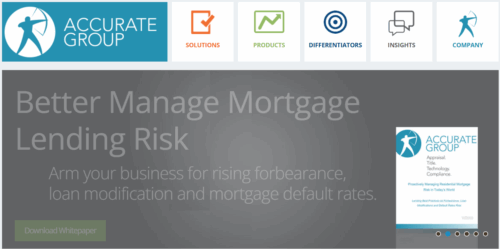| NOTARIZATION SERVICES FOR REAL ESTATE
Real Estate Notarization Services
Every real estate notarization requires meticulous attention to detail, compliance with legal requirements, and measures to prevent fraud. Our expert notary professionals, advanced software, and reliable services help ensure a convenient, efficient process.*
| NOTARIZATION SERVICES FOR MORTGAGE LENDING
Mortgage Loan Notarization: Precise and Compliant Loan Closings
Mortgage loan notarization is critical for securing financing for property purchases, helping to ensure that all loan documents are legally executed and enforceable.
Our expert notary services, backed by smart software and high-touch services play a key role in preventing errors that could delay funding or result in compliance issues.
Mortgage Lending Notarization Services Include:
Home Purchase Mortgage Closings
Conventional Loans – Standard mortgages not backed by the government.
FHA Loans – Government-backed loans requiring notarization of key documents.
VA Loans – Mortgages for veterans and active-duty service members, often requiring specific notarization steps.
USDA Loans – Government-backed loans for rural homebuyers.
Mortgage Refinancing
Rate-and-Term Refinance – Replacing an existing mortgage to secure better terms.
Cash-Out Refinance – Borrowing against home equity while refinancing.
Streamline Refinancing – Simplified refinancing for FHA, VA, or USDA loans with minimal documentation.
Home Equity Loans & Lines of Credit (HELOCs)
Home Equity Loans – Lump-sum loans secured by home equity.
HELOCs – Revolving credit lines backed by home equity.
Reverse Mortgages
HECM (Home Equity Conversion Mortgage) – Government-insured reverse mortgages requiring notarization.
Proprietary Reverse Mortgages – Private lender-backed loans for higher-value properties.
Loan Modifications & Assumptions
Loan Modifications – Adjusting terms for borrowers facing financial hardship.
Mortgage Assumptions – Transferring an existing mortgage to a new borrower.
Construction Loans & Second Mortgages
Construction Loans – Short-term financing for new home construction.
Second Mortgages – Additional loans secured against the home’s equity.
Foreclosure-Related Transactions
Deed in Lieu of Foreclosure – Borrowers voluntarily transferring property to the lender.
Short Sales – Sales where the property is sold for less than the mortgage balance.
| NOTARIZATION SERVICES FOR PRIVATE LENDERS
Private Lending Notarization: Compliant Online Loan Closings
Our notarization software and services are built for private lenders funding commercial real estate deals—especially those involving short-term, high-volume transactions like fix-and-flips.
From loan agreements to deeds of trust, we help streamline the notarization process with secure, remote online options. Whether you’re closing deals across state lines or coordinating with multiple parties, we help you move faster, reduce risk, and stay compliant—so your capital works harder, not your team.
Private Lenders Notarization Services Include:
- Loan Agreements (Commercial and Bridge Loans)
- Promissory Notes**
- Deeds of Trust / Mortgages
- Personal Guarantees
- Corporate or LLC Resolutions (if borrower is an entity)
- Assignment of Rents and Leases
- Lien Waivers and Releases
- Affidavit of Borrower Identity
- Power of Attorney (for title or signing agents)
- Subordination Agreements
- Title Transfer Documents
- Construction or Rehab Draw Agreements
- Escrow Instructions and Closing Statements
- Loan Modification or Extension Agreements
- Satisfaction or Release of Mortgage
| NOTARIZATION SERVICES FOR TITLE COMPANIES
Expert Title Notarization: Essential in Title Transactions
Notarization is a critical safeguard in title transactions, to help ensure the legality, validity, and enforceability of property ownership transfers.
Whether a property is being bought, sold, or refinanced, expert notarization services—backed by trained professionals, advanced software, and secure processes—can protect against fraud, disputes, and legal challenges.
Notarization Services for Title Include:
Property Transfer & Ownership Documents
- Grant Deed – Transfers ownership with a guarantee that the seller has the right to sell.
- Warranty Deed – Provides full legal protection to the buyer against title defects.
- Quitclaim Deed – Transfers ownership interest without warranties or guarantees.
- Trustee’s Deed – Used when property is sold by a trustee, often in foreclosure sales.
- Correction Deed – Fixes clerical errors in previously recorded deeds.
- Life Estate Deed – Grants property rights for a lifetime, with ownership passing to another party upon death.
- Beneficiary Deed / Transfer on Death Deed (TODD) – Transfers property automatically upon the owner’s death
Loan & Mortgage Transactions
- Deed of Trust / Mortgage – Secures the lender’s interest in the property until the loan is paid.
- Promissory Note – Outlines the borrower’s repayment obligations (not always notarized but crucial in closings).
- Loan Modification Agreements – Adjusts mortgage terms for borrowers in hardship.
- Subordination Agreements – Alters lien priority between different lenders.
- Loan Assumption Agreements – Transfers mortgage obligations to a new borrower.
Title & Lien-Related Documents
- Affidavit of Title – Seller swears there are no undisclosed liens or claims on the property.
- Lien Releases & Satisfaction of Mortgage – Confirms a paid-off mortgage or lien removal.
- Mechanic’s Lien Waivers & Releases – Removes claims from contractors or suppliers.
- UCC-1 Financing Statements & Terminations – Used to secure interests in business or commercial property.
Estate, Trust, & Probate Transactions
- Executor’s Deed – Transfers property from an estate.
- Trust Certifications & Trustee’s Affidavits – Confirms a trustee’s authority to sell or transfer property.
- Letters of Testamentary / Letters of Administration – Court-issued documents allowing an executor to act.
- Probate Affidavits – Sworn statements related to estate administration.
Marital & Family Transfers
- Divorce Settlement Deeds – Transfers property between spouses after divorce.
- Spousal Consent Forms – Required in some states when one spouse waives rights to property.
- Affidavit of Heirship – Establishes legal heirs for inherited property.
Business & Commercial Real Estate Transactions
- Commercial Lease Agreements – Long-term lease contracts requiring notarization.
- Business Entity Authorization – Confirms a corporation, LLC, or partnership’s authority to transfer property.
- 1031 Exchange Agreements – Facilitates tax-deferred property exchanges.
Foreclosure & Distressed Property Transactions
- Notice of Default / Foreclosure Deed – Initiates foreclosure or confirms sale.
- Short Sale Affidavits – Confirms a distressed sale was conducted fairly.
- Deed in Lieu of Foreclosure – Transfers property back to the lender to avoid foreclosure.
Miscellaneous & Special Purpose Notarizations
- Power of Attorney (POA) for Real Estate Transactions – Grants authority to act on behalf of another party.
- Homestead Exemption Affidavit – Establishes eligibility for property tax reductions.
- Easement & Right-of-Way Agreements – Grants access rights over a property.
- Zoning & Land Use Affidavits – Confirms compliance with local land regulations.
Contact Sales if your title agency would benefit from an integrated platform with 24/7 notaries on call.
| NOTARIZATION SERVICES FOR FINTECHS
Fintech Notarization Services: Compliant, Streamlined Services
Notarization helps ensure that fintech companies maintain compliance, safeguard against fraud, and secure important transactions. If your fintech operates in areas like lending, investments, or cross-border transactions, notarization can be an essential part of maintaining a secure and legally compliant environment.
Notarization Services for Fintechs Include:
Consumer Agreements
- Loan or Credit Applications: Applications for personal loans, lines of credit, or mortgage loans.
- Terms & Conditions for Digital Banking Services: Agreements outlining the terms of use for fintech platforms or mobile banking apps.
- E-wallet or Digital Wallet Agreement: Notarization of terms between the fintech company and user, often required for digital wallets.
Loan Agreements
- Personal Loans: Notarized agreements between a borrower and lender outlining loan terms.
- Business Loans: Documents related to loans issued to businesses, including terms, repayment schedules, and security agreements.
- Mortgage Documents: For home loans or property financing, including deeds of trust, promissory notes, and mortgage loan modification agreements.
Investment Contracts
- Equity and Debt Investment Agreements: Notarized contracts for investments, such as private equity deals, bonds, or venture capital investments.
- Stock or Shareholder Agreements: Documents related to the buying, selling, or transfer of shares in companies.
- Private Placement Memorandums: Used for raising capital through private investment offerings.
Power of Attorney (POA)
- Financial POA: Grants another person the authority to make financial decisions on behalf of a client.
- Digital Asset POA: Allows someone to act on behalf of the client in digital or cryptocurrency-related matters.
Real Estate Transactions
- Property Deeds: Used in the transfer of ownership for physical property, including deeds of trust, warranty deeds, or quitclaim deeds.
- Title Transfers: Involved when transferring ownership of a property from one party to another.
- Mortgage or Deed of Trust Signatures: Documents needed in the real estate closing process.
Securities and Investment Documents
- Investor Signatures for New Offerings: When new securities are issued or investors are added to a portfolio, their agreements may need to be notarized.
- Compliance Forms for Investment Firms: Documents needed for compliance with securities regulations, such as filings with the SEC or other authorities.
Business Contracts
- Partnership or Joint Venture Agreements: When fintech companies enter into partnerships or joint ventures, these agreements often require notarization.
- Non-Disclosure Agreements (NDAs): Protects confidential information shared between two parties.
- Service Agreements: Contracts outlining the terms of service between the fintech company and clients or vendors.
Regulatory Compliance Documents
- Know Your Customer (KYC) Documents: Used to verify the identity of customers and prevent fraud. Some jurisdictions may require notarization for certain documents in the KYC process.
- AML Compliance Forms: Anti-money laundering forms that ensure a company complies with regulations to prevent money laundering or terrorist financing.
Cross-Border Transactions
- International Payment Documents: When sending money across borders or dealing with international investors, notarized documents may be necessary to ensure proper legal compliance.
- Cross-Border Financial Agreements: For foreign investments, international loans, or property transactions.
Bankruptcy and Debt Settlement Documents
- Debt Settlement Agreements: Notarized documents outlining the settlement of debts, often negotiated between fintech lenders and borrowers.
- Bankruptcy Filing Documents: Certain bankruptcy-related documents may need to be notarized to ensure authenticity.
Wills, Trusts, and Estate Planning Documents
- Last Will and Testament: Fintech platforms dealing with estate planning may need to notarize clients’ wills.
- Trust Agreements: Documents related to establishing or modifying trusts, especially for wealth management services.
Insurance Claims and Policies
- Insurance Applications: Applications for life insurance, auto insurance, or other financial products that require notarized signatures.
- Claim Forms: Claims for insurance payouts or settlements.
Cryptocurrency and Digital Asset Transactions
- Smart Contracts: When dealing with blockchain-based agreements or cryptocurrency exchanges, notarization may be required for authenticity, especially for larger transactions.
- Digital Wallet Agreements: The creation or transfer of ownership of digital assets or cryptocurrency may involve notarized documentation.
| NOTARIZATION SERVICES TO SUPPORT MORTGAGE SERVICING
Mortgage Servicing: Complete Notarization Software and Services
Mortgage servicers handle sensitive transactions that require precise, compliant, and secure notarization. Our expert notarization services help ensure that all necessary documents are properly executed, reducing risk, preventing fraud, and streamlining loan servicing operations.
Notarization Services for Mortgage Servicers Include:
Loan Modifications
- Loan Modification Agreement – Alters the original terms of a loan (e.g., interest rates, payment schedule).
- Forbearance Agreements – Modifies loan terms temporarily for borrowers experiencing financial hardship.
Lien Releases & Satisfactions
- Mortgage Satisfaction – Confirms that a loan has been paid off in full, releasing the lien.
- Partial Lien Releases – Allows partial releases of the mortgage for properties or portions of properties (e.g., for a new loan).
- Release of Mortgage – Removes the lien on the property after the debt is satisfied.
Subordination Agreements
- Subordination Agreement – Adjusts the priority of liens, especially in cases of refinancing or home equity loans.
Foreclosure-Related Transactions
- Deed in Lieu of Foreclosure – Transfer of property to the lender to avoid foreclosure proceedings.
- Notice of Default – Notifies the borrower of missed payments and the intention to begin foreclosure proceedings.
- Foreclosure Sale Documents – Documents related to the sale of foreclosed properties, including affidavits and deeds.
- Foreclosure Affidavit – Provides legal verification of the foreclosure process.
Assignment & Transfer of Mortgages
- Assignment of Mortgage – Transfers the mortgage from one lender or servicer to another.
- Assignment of Deed of Trust – Transfers the legal rights to the property from one party to another.
Home Equity Loans and Lines of Credit (HELOC)
- HELOC Agreement – Notarization of the loan agreement for a home equity line of credit.
- Home Equity Loan Agreement – Notarizes documentation for a lump-sum home equity loan.
Bankruptcy-Related Transactions
- Bankruptcy Proof of Claim – Verifies the servicer’s claim on a debtor’s property during bankruptcy proceedings.
- Bankruptcy Affidavit – A sworn statement regarding the mortgage or lien in a bankruptcy case.
Deeds & Property Transfers
- Deed in Lieu of Foreclosure – Used in lieu of foreclosure to transfer ownership of the property to the lender.
- Quitclaim Deed – Used in cases where a borrower transfers their interest in the property without guarantees.
Power of Attorney (POA) for Mortgage Transactions
- Limited Power of Attorney – Grants authority for another party to act on behalf of the borrower, such as in loan or deed signing.
- General Power of Attorney – Allows a designated representative to handle all real estate transactions for the borrower.
Loan Assumption Agreements
- Mortgage Assumption Agreement – Transfers the responsibility of the loan from the original borrower to a new borrower.
Modifications to Mortgage Terms
- Modification of Deed of Trust – Changes or amends the original mortgage terms, such as interest rate adjustments.
Tax Liens & Payments
- Tax Lien Affidavit – Notarized document confirming that the tax lien has been paid off or is being disputed.
- Tax Payment Acknowledgment – Verifies tax payments made on the property, typically in the event of tax-related foreclosure or redemption.
Reverse Mortgage Transactions
- Reverse Mortgage Closing Documents – Notarizing all documents related to the execution of a reverse mortgage agreement.
Loan Repayment & Reconciliation
- Payment Agreements – Establishes terms for repaying a loan in arrears or under modified conditions.
- Debt Settlement Affidavit – Verifies that the debt has been settled through negotiation or other means.
Divorce or Family Law Transactions
- Divorce Decrees Involving Property Transfers – Transfers of property between spouses as part of a divorce settlement.
- Spousal Consent Forms – In some cases, notarization is required for one spouse to relinquish claims to the property in favor of the other.
| NOTARIZATION SERVICES FOR DEFAULT SERVICING
Mortgage Default Servicing Notarization: Compliant, Streamlined Services
In default mortgage servicing, notarization can play a critical role in helping to ensure that all documents related to distressed loans, foreclosures, and bankruptcy proceedings are legally binding, accurate, and compliant with state and federal regulations.
Notarization Services for Default Servicing Include:
Foreclosure-Related Documents
- Notice of Default – Notarized notice informing the borrower of missed payments and the impending foreclosure action.
- Foreclosure Sale Documents – Includes affidavits, certificates, and deeds related to the sale of foreclosed property.
- Foreclosure Affidavit – Sworn statement verifying the completion of foreclosure proceedings.
- Deed in Lieu of Foreclosure – Transfers property back to the lender voluntarily to avoid a formal foreclosure process.
Loan Modifications & Payment Relief
- Loan Modification Agreement – Changes the terms of a mortgage loan, including payment schedules, interest rates, or loan extensions.
- Forbearance Agreement – Temporarily reduces or suspends mortgage payments due to borrower hardship.
- Deed of Trust Modification – Changes made to the terms of the trust deed associated with the mortgage.
Lien-Related Transactions
- Release of Lien – Notarized document that verifies the satisfaction of a debt and removes the lien from the property.
- Partial Lien Release – Removes a portion of a lien from a property, often in cases of refinancing or sale of part of the property.
- Subordination Agreements – Changes the priority of liens or debt in relation to other claims.
Bankruptcy and Debt Settlement
- Proof of Claim in Bankruptcy – A notarized document used to establish the servicer’s claim in a bankruptcy case.
- Bankruptcy Affidavit – Verifies the status of a loan during a bankruptcy proceeding.
- Debt Settlement Agreements – Agreements reached between the lender and borrower to settle or reduce debt.
Mortgage Assignments & Transfers
- Assignment of Mortgage – Notarizes the transfer of mortgage rights from one servicer or lender to another.
- Assignment of Deed of Trust – Transfers the legal rights associated with the deed of trust.
- Mortgage Transfer Documentation – Documents the official transfer of loan servicing rights from one entity to another.
Property Transfer & Ownership Documents
- Quitclaim Deed – Transfers ownership rights to a property without guarantees, often used in divorce settlements or foreclosure proceedings.
- Warranty Deed – Provides a guarantee that the property is free from any encumbrances except those disclosed in the deed.
- Executor’s Deed – Used when transferring property from a deceased person’s estate to heirs or beneficiaries.
Bank-Related Documents for Default
- UCC-1 Financing Statement – Secures the interest of a creditor in a debtor’s property as collateral for a loan.
- UCC-3 Termination Statement – Used to terminate a previously filed UCC-1 statement when the loan or obligation is satisfied.
Power of Attorney (POA) for Default Transactions
- Limited Power of Attorney – Authorizes a third party to act on behalf of a borrower in specific default or foreclosure-related matters.
- General Power of Attorney – Grants a designated person the authority to act on behalf of the borrower across all default transactions.
Reverse Mortgage Transactions
- Reverse Mortgage Closing Documents – Notarizes documents related to the closing of a reverse mortgage, including agreements for loan terms and repayments.
Spousal or Family Law Documents
- Spousal Consent Forms – Notarized documents allowing one spouse to relinquish any claims or rights to property involved in default or foreclosure.
- Divorce Settlement Deeds – Transfers of property between spouses as part of a divorce settlement, often in default situations.
Short Sale Agreements
- Short Sale Approval Documents – Notarized documents verifying the approval of a short sale transaction, where the lender agrees to accept less than the owed amount.
- Short Sale Affidavit – A sworn statement confirming the terms and conditions of a short sale.
Awarded Eight Consecutive Years








| CASE STUDIES
Read about a client’s experience with seamless, reliable, and compliant signing experiences.

| HIGHLY RANKED SERVICES
Top Rated Notary Service
Our platform and notaries deliver exceptional service every day. Thousands of reviews and an average rating of 4.8/5 stars, demonstrates our commitment to satisfaction.
Transactions
Customer Satisfaction
U.S. States
Countries
| ANSWERS TO YOUR QUESTIONS
Can My Mortgage Be Notarized Online?
In many cases, your mortgage can be notarized online through Remote Online Notarization (RON). However, whether this is possible depends on:
- State Laws – Many states allow RON for mortgage documents, but some still require in-person notarization
- Lender & Title Company Policies – Some lenders and title companies may not accept remote notarization
- Type of Mortgage – Certain loan types (e.g., FHA, VA loans) may have restrictions on remote notarization
- How Online Mortgage Notarization Works:
Identity Verification – You verify your identity through a secure online platform - Live Video Notarization – A commissioned online notary witnesses your signature via video call.
- Digital Seals & E-Signatures – Documents are electronically signed and notarized
- Secure Digital Record – A tamper-proof record is stored for legal protection
Benefits of Online Notarization:
- Convenient – Sign from anywhere, no travel required
- Faster Processing – Reduces delays and speeds up closing
- Secure & Compliant – Uses encryption and audit trails for security

Now Hiring Notaries!
| MORE FREQUENTLY ASKED QUESTIONS
The specific documents can vary by state and lender, but commonly notarized mortgage documents include:
Mortgage or Deed of Trust – This secures the loan with the property and must be recorded with the county.
Promissory Note (occasionally) – While often not required to be notarized, some lenders may request it.
Loan Agreement – In some cases, this document may need to be notarized if it includes critical terms.
Affidavits – Such as owner’s affidavit, occupancy affidavit, or identity affidavit.
Power of Attorney (if used) – If someone is signing on your behalf, the POA must be notarized.
In many states, yes! Remote Online Notarization (RON) allows you to sign and notarize documents via video call. However, not all counties or lenders accept RON for real estate closings—check first.
You’ll typically need:
A reliable internet connection
A computer with a camera and microphone
A valid government-issued photo ID
Access to a secure online notary platform (provided by the title company or notary service)
There are typically three types:
Hybrid Closing: Some documents are signed digitally; others (like the note or deed) are signed in person.
Full eClosing: All documents are signed and notarized electronically.
Remote Online Notarization (RON): The entire closing, including notarization, is done remotely via our secure video platform.
*Please note that this is for informational purposes only and is not legal advice; please check with your attorney to determine what would work best for your situation.
**Note that there are guidelines as to which promissory notes may be electronically signed.
***This page is provided for informational purposes only, and does not constitute legal advice, nor is it a representation, warranty, or covenant of any kind made by NotaryCam to the reader.






 Your Privacy Choices
Your Privacy Choices


